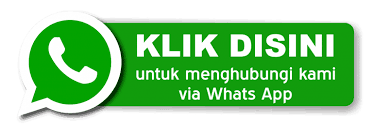Education and Training to Improve Human Resources Quality in Maritime Transportation Industry
Keywords:
Training, Instructor Trainer, HR Quality, Marine Transportation Industry, Linear RegressionAbstract
This study aims to analyze the effect of education and training (Diklat) and the quality of training instructors on improving the quality of human resources (HR) in the sea transportation industry. This industry requires high quality human resources to ensure operational effectiveness and competitiveness in the era of globalization. The research method used is quantitative with a survey approach. The results showed that Training and Instructor Trainers have a significant and positive influence on the quality of human resources. The t-test results show that training has a coefficient of 0.722 and training instructors of 0.866, both of which are significant at the 0.000 level. The F test yielded a value of 78.436 with a significance of 0.000, indicating that the regression model as a whole is significant in predicting HR quality. The R Square value of 0.615 indicates that 61.5% of the variation in HR quality can be explained by the Training and Instructor Trainer variables.Based on these results, it is concluded that quality education and training programs, as well as competent training instructors, play an important role in improving the competence and performance of HR in the maritime transportation industry. The findings provide implications for company management in increasing investment in HR training to achieve better competitiveness in the sector.
References
Becker, G. S. (1964). Human Capital: A Theoretical and Empirical Analysis, with Special Reference to Education. University of Chicago Press.
Boyatzis, R. E. (1982). The Competent Manager: A Model for Effective Performance. John Wiley & Sons.
Drewry Maritime Research. (2016). Manning 2016: Crewing Costs Set to Rise as Shortage of Officers Looms. Drewry Publishing.
Elizabeth, J., Abraham., Patrick, Linke., Ma’moun, Al-Rawashdeh., Joseph, Rousseau., Gareth, Burton., Dhabia, M., Al-Mohannadi. (2024). 2. Large-scale shipping of low-carbon fuels and carbon dioxide towards decarbonized energy systems: Perspectives and challenges. International Journal of Hydrogen Energy, doi: 10.1016/j.ijhydene.2024.03.140
Ergun, Demirel. (2020). 5. Maritime Education and Training in the Digital Era. Universal Journal of Educational Research, doi: 10.13189/UJER.2020.080939
Fardhal, Virgiawan, Ramadhan., Ade, Chaerul. (2023). 5. Peluang dan Tantangan Indonesia Menuju Poros Maritim Dunia: Perspektif Politik Internasional. Tuturan, doi: 10.47861/tuturan.v1i3.460
Hani, Gita, Ayuningtias. (2023). 3. Digital Skills and Competencies for a Changing Labor Market in Indonesia. Advances in educational technologies and instructional design book series, doi: 10.4018/978-1-6684-9089-1.ch006
Huan, Liu., Wen, Yi., Jukka-Pekka, Jalkanen., Elisa, Majamäki., Volker, Matthias., Jana, Moldanová., Zongbo, Shi., Kebin, He. (2024). 3. Atmospheric impacts and regulation framework of shipping emissions: achievements, challenges and frontiers. Fundamental research, doi: 10.1016/j.fmre.2024.02.013
International Maritime Organization (IMO). (2017). STCW – International Convention on Standards of Training, Certification and Watchkeeping for Seafarers. IMO Publications.
Ioannis, N., Theotokas., Ioannis, N., Lagoudis., Konstantina, Raftopoulou. (2024). 2. Challenges of maritime human resource management for the transition to shipping digitalization. Journal of Shipping and Trade, doi: 10.1186/s41072-024-00165-0
Irmina, Durlik., Tymoteusz, Miller., Ewelina, Kostecka., Adrianna, Krzemińska., Tomasz, Kostecki. (2024). 1. Harnessing AI for Sustainable Shipping and Green Ports: Challenges and Opportunities. Applied Sciences, doi: 10.3390/app14145994
Lorange, P. (2005). Shipping Company Strategies: Global Management under Turbulent Conditions. Elsevier.
Magmawati, Tri, Heriati., Sri, Umiyati., Wildan, Taufik, Raharja. (2023). 1. Implementation of Education and Training Programs (Training) at the Main Harbor Office of Tanjung Perak Surabaya. International journal of social science and human research, doi: 10.47191/ijsshr/v6-i9-60
Marlow, P. B., & Mitroussi, K. (2013). Maritime Training and Education in the 21st Century. Maritime Policy & Management, 40(2), 131-147.
Mukhlis., Okol, Sri, Suharyo. (2022). 3. Strategy development concept for achievement excellent human resources toward an advanced Indonesia in the marine field. Global Journal of Engineering and Technology Advances, doi: 10.30574/gjeta.2022.12.3.0161
Naila, Najma, Alifa., M., Syaprin, Zahidi. (2024). 2. Pengembangan ekonomi biru sebagai strategi indonesia menuju ekonomi maju. Jurnal Ilmu Sosial dan Ilmu Politik (Sekolah Tinggi Ilmu Sosial dan Ilmu Politik Wira Bhakti), doi: 10.52318/jisip.2024.v38.1.4
Ningrum, Astriawati., Prasetya, Sigit, Santosa., Waris, Wibowo., Benny, Hartanto., Yudhi, Setiyantara. (2022). 2. Indonesian Maritime E-Leadership Training Towards a Digital-Based Marine Transportation System. International Journal Of Community Service, doi: 10.51601/ijcs.v2i4.132
Noe, R. A. (2017). Employee Training and Development. McGraw-Hill Education.
Nofie, Iman., Muhammad, Tafdhil, Amanda., Jovita, Angela. (2022). 5. Digital transformation for maritime logistics capabilities improvement: cases in Indonesia. Marine economics and management, doi: 10.1108/maem-01-2022-0002
Notteboom, T., & Winkelmans, W. (2020). Port Technology and Its Impact on Human Resources: A Comparative Analysis. Transportation Research Part A: Policy and Practice, 137, 30-42.
Oladapo, Adeboye, Popoola., Michael, Oladipo, Akinsanya., Godwin, Nzeako., Excel, G, Chukwurah., Chinyere, Okeke. (2024). 1. The impact of automation on maritime workforce management: A conceptual framework. International journal of management & entrepreneurship research, doi: 10.51594/ijmer.v6i5.1095
Pedro, B., Água., Armindo, Dias, da, Silva, Frias., Manuel, de, Jesus, Carrasqueira., José, Manuel, Modas, Daniel. (2020). 4. Future of maritime education and training: blending hard and soft skills. Pomorstvo, doi: 10.31217/P.34.2.15
Pedro, B., Água., Armindo, Dias, da, Silva, Frias., Manuel, de, Jesus, Carrasqueira., José, Manuel, Modas, Daniel. (2020). 4. Future of maritime education and training: blending hard and soft skills. Pomorstvo, doi: 10.31217/P.34.2.15
Prasadja, Ricardianto., Ridho, Bramulya, Ikhsan., Rini, Setiawati., Rudy, Max, Damara, Gugat. (2020). 5. How to improve ship crew’s work effectiveness through the leadership style, work life balance and employee engagement in Indonesia national shipping. Management Science Letters, doi: 10.5267/J.MSL.2019.8.030
Stopford, M. (2009). Maritime Economics. 3rd Edition. Routledge.
Vinko, Pavic., Sandra, Tominac, Coslovich., Nina, Kostović. (2023). 3. Current Challenges in Professional Education and Training of Seafarers at Management Levels on Oil Tankers. TransNav: International Journal on Marine Navigation and Safety of Sea Transportation, doi: 10.12716/1001.17.03.21
Wang, G. W. Y., & Notteboom, T. (2015). The Impact of Technology on Maritime Transport. In Handbook of Maritime Economics and Business. 2nd Edition. Routledge.
Xiaoxuan, Zhou., Lei, Dai., Hao, Hu., Mingyang, Zhang. (2024). 4. An environmental and economic investigation of shipping network configuration considering the maritime emission trading scheme. doi: 10.1016/j.ocecoaman.2023.107013.
Downloads
Published
How to Cite
Issue
Section
License
Copyright (c) 2024 Yuda Muhamad Admiral

This work is licensed under a Creative Commons Attribution-ShareAlike 4.0 International License.



